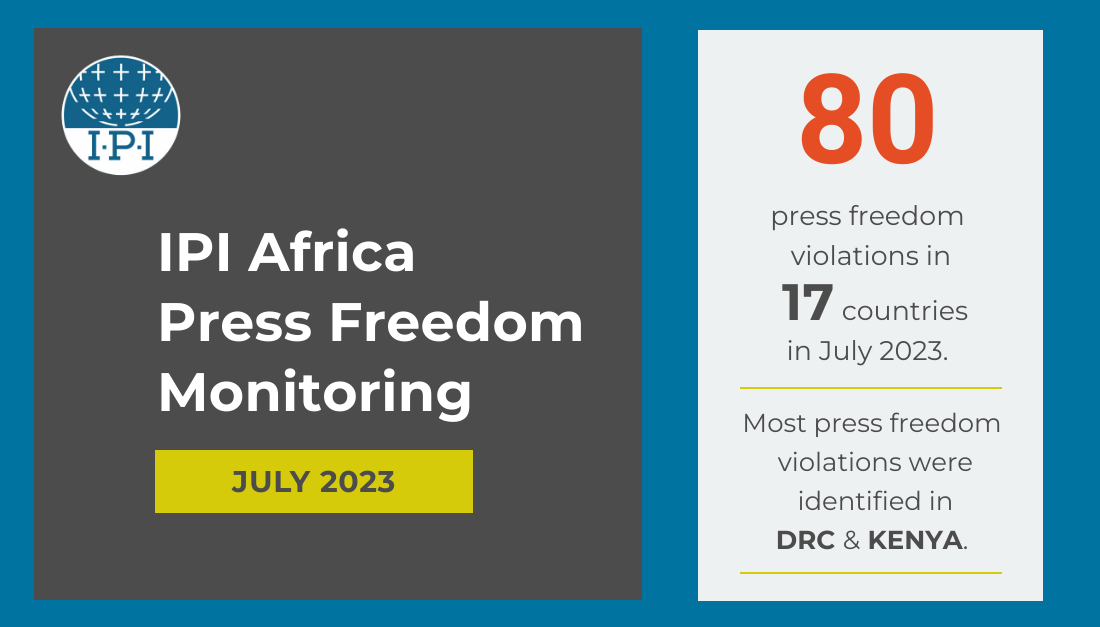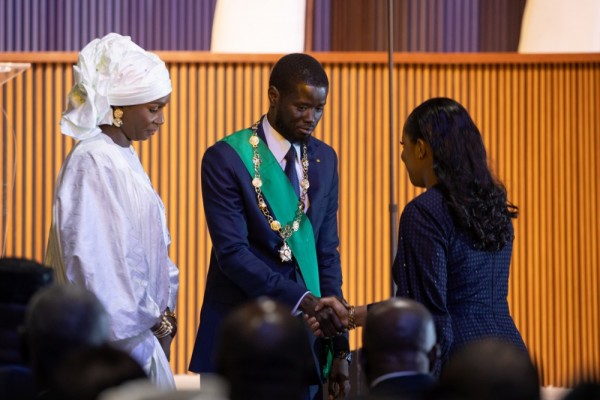In July 2023, the IPI global network’s monitoring of press freedom violations in sub-Saharan Africa recorded 80 incidents in 17 countries. During the month under review, the Democratic Republic of Congo (DRC) recorded the highest number of incidents, followed by Kenya, Uganda, and Zimbabwe, which recorded 8 incidents each, and Gabon, with five incidents.
The incidents of press freedom violations include physical attacks, arrests, detentions of journalists, and censorship. Physical, verbal or online attacks on journalists and media workers represent the most frequent type of violations recorded. In most cases, the perpetrators of these violations are state actors, with the police/state security emerging as the top violators of press freedom. A number of incidents included the forced deletion of journalists’ camera and telephone content.
In the DRC, a total of 17 incidents were recorded during this month. For instance, on July 29, at least five journalists and six media workers, including technicians, were assaulted and prevented from accessing a venue by suspected sympathizers of the ruling party. The journalists and their crews of technicians were covering a rally in Kananga, the capital of Kasaï-Central province. As a result of the physical brutalities meted out to the journalists, three of them sustained injuries. In addition, according to the local press defense group Observatoire de la Liberté de la Presse en Afrique (OLPA) on July 26, the police arrested Martin Nyamabu and Papy Ngalamulume, journalists at Radio Communautaire de Kamonia Horizon (RCKH) and Radio Télé Kamonia (RTK), respectively, both stations broadcasting from Kamonia, a territory 75 km from Tshikapa, capital of Kasai province in central DRC. The journalists were arbitrarily arrested while reporting on a protest by civil society organizations against the appointment of Lazard Shidi Ilamikiza as district chief executive of Kasaï-Longotshimo.
In Kenya, several journalists were assaulted while reporting on the anti-government protest led by the opposition party coalition Azimio. On July 20, journalist Richard Saka of Milele FM was detained by anti-riot police while covering the protests despite identifying himself to the police. On July 7, journalist Isaiah Gwengi of Standard Group was arrested by security forces and James Keyi of Reuters was attacked by goons while both were covering anti-government protests in Bondo, Siaya County.
In another incident, a police officer disguised as a journalist arrested protesters taking part in anti-government demonstrations. The act was condemned as “endangering the lives of journalists in the line of duty” and “a grave unprofessional misconduct on the part of the police”.
IPI monitors and collects data on press freedom violations in Africa using a standardized methodology that categorizes violations across the following main categories: physical, verbal or online attacks; arrests and charges against journalists; surveillance of journalists; cases of censorship; laws and regulations that restrict the press freedom; and restriction on access to information. Data are further disaggregated by gender. Our monitoring and data collection activities are part of IPI’s wider Africa programme, which aims to defend press freedom and the safety of journalists in sub-Saharan Africa.



